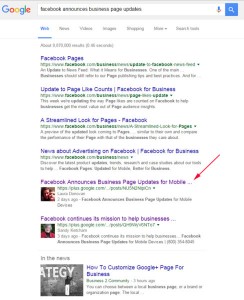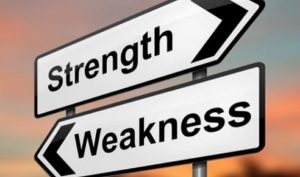By Jessica Thiefels
June 10, 2022

Emotional intelligence is a mission-critical skill to hone for strong interpersonal communication, collaboration, and connection in the workplace. It might just build some momentum that advances your career, too. Here’s all you need to know about emotional intelligence—what it is, why it matters, and how to cultivate it on the job.
What is emotional intelligence?
In 2021, psychological researchers formulated a basic definition of emotional intelligence (or EQ, as it’s often called). Here’s their EQ elevator pitch:
The ability to carry out accurate reasoning about emotions, and the ability to use emotions and emotional knowledge to enhance thought.
In other words, an emotionally intelligent person can identify, express, manage, and then respond to emotions in a balanced way.
In a previous Fast Company report, psychotherapist Farrah Harris discussed EQ as self-awareness in action—with your work life, with your relationships, and with your own internal nature. Author and psychologist Daniel Goleman expanded on this with the following personality and behavioral traits, which he uses to evaluate EQ:
- Self-Awareness: Recognize your own emotions, choices, actions, and the potential effect they could have on others.
- Self-Regulation: Process and express emotions constructively, adapt to changes flexibly, and manage conflict effectively.
- Social Skills: Be an active listener, strong communicator, and respectful in all interactions to form high-trust relationships.
- Empathy: Interpret how those around you feel, then respond in a way that comes across as compassionate and validating.
- Motivation: Strengthen the drive to pursue your goals, seek out learning experiences, and continue to evolve as a person.
Why this is vital in the workplace?
A high EQ can help you improve as a leader, contributor, collaborator, and team player at work. Research also indicates that employees who cultivate emotional intelligence are less prone to chronic stress or burnout and exhibit more resilience and job satisfaction overall.
Those aren’t the only benefits—EQ is also a key factor in both hiring and promoting decisions, reveals emotional intelligence expert Harvey Deutschendorf. In a Fast Company article, Deutschendorf pointed out that, as someone rises through the ranks at an organization, interpersonal skills become more valuable than technical abilities.
It’s not hard to recruit an employee who knows how to perform basic job requirements. But a self-aware employee who can maintain strong, collaborative relationships to propel the company mission forward with passion and empathy is a rare and powerful find.
Not only will managers and executives want to hold onto this asset, but these skills can open doors for leadership and career advancement for that person as well. This makes EQ crucial for you, no matter where you are in your career.
In fact, according to a recent analysis from HR Digest, emotional intelligence became the most sought-after workplace qualification in the pandemic. This makes a lot of sense when you think about it: During a time of so much rapid change, fear, and upheaval, it suddenly felt more important than ever to establish secure connections, lean into flexible adaptations, and nurture empathetic communications.
Whether COVID-19 stays or goes, emotional intelligence, and its importance in the workplace, isn’t going away. If you want to improve your EQ, use this guide to learn what an emotionally intelligent person does at work and how you can improve yours so you can perform better and grow in your career.
How to build emotional intelligence
Emotional intelligence is something you can develop and bring to your work over time. By taking intentional action and practicing the following, you can develop stronger emotional intelligence. Use these practical steps to cultivate these skills in your own interpersonal work dynamics. Whether you’re on Zoom with colleagues, at a presentation with clients, or in a meeting with your supervisor, a high EQ is always beneficial.
Listen with the goal to understand
Many conflicts can be resolved—or prevented altogether—when you listen to what the person on the other side of the conversation is communicating, instead of just formulating your response while they talk. It’s so easy to tune out as someone else is speaking while you focus on what you want to say in return, slowly tallying your response to each point that they’re making.
Not to mention, it’s easy to simply be distracted during conversations. Between chat pings, social media notifications, and emails coming into your inbox, half the time you’re not really in the conversation—it’s just happening while you focus on all these other things.
Tuning into the person who’s speaking, and really understanding what’s being said, is called active listening. It’s also one of the most crucial skills an employee can have.
Here are a few key tips to raise your EQ through active listening. Make sure others feel heard with these different techniques:
- Maintain an open body posture and a natural pattern of eye contact.
- Pay attention to nonverbal cues (facial expressions, tone of voice, or gestures).
- Do not interrupt; wait until you’re certain the other person is done talking.
- Communicate with a balance of directness and respect with it’s your turn to speak.
- Repeat their words (“what I hear you sharing is . . . “) to reassure them you’re tracking.
- Ask relevant, clarifying questions to make sure you understand the message.
- Do not jump to conclusions or plan out your own rebuttal in advance.
- Check to see if they want advice or input before offering any potential solutions.
Remember you should practice active listening in every conversation, big and small, virtual or in-person. The more you practice these skills, and actually listen to the people you’re speaking with, the better your EQ gets, too. You’ll also do better work because you’re actually hearing what the other person is saying, so fewer details get lost.
Avoid reacting to intense pressure
Stress is a natural part of any job. There are tasks to finish, quotas to meet, clients to retain, and team dynamics to navigate. How you react to this stress is a significant indicator of your EQ. Do you shrink or blow up under the pressure, or do you keep a level head?
As the pressure mounts, people with strong emotional intelligence are able to remain calm, think rationally, and choose proactive measures, instead of impulsively reacting. Someone with a strong EQ is aware of their “internal thermometer,” which leads to a more balanced response and healthier stress management, Deutschendorf wrote.
This also makes it easier and more enjoyable for others to work with you. If coworkers know you have a rational and purposeful disposition, they’re more likely to reach out to collaborate and connect. Improve this area of your EQ by focusing on your reaction at the moment. Do that with these simple but potent strategies:
- Don’t try to fight or repress emotions. Acknowledge what you feel in the moment.
- Accept the emotions. When you label them “wrong,” it only intensifies the pressure.
- Pause to take a few deep, stabilizing breaths before you move towards action.
- Read the environment to know when it’s acceptable to externalize feelings and when you need to carve out space to sit with them internally.
Self-inquiry is a critical aspect of EQ and self-regulation. Use these questions to find your sense of calm and level-headedness during an intense situation:
- What interaction or scenario led to this feeling?
- How do I want to react right now?
- Do I need to gather more information or consider another explanation before I act on my own assumptions?
- Is there a healthier way to cope with my feelings or solve this problem?
If you have a moment where you do act impulsively or respond in a way you don’t like, use these questions retroactively. Looking back on the situation can help you practice tapping into your feelings and response in a heated moment.
Be open to constructive feedback
Feedback is not always comfortable, but it’s essential for both personal and professional growth. Not only do you need to give feedback, but you have to be able to take it. What’s more, feedback is valuable to everyone involved. When you’re receptive to feedback and then willing to do the work to implement it, you strengthen relationships and boost performance, allowing you to make a greater impact in the workplace.
Instead of shutting down or becoming defensive when someone gives you constructive feedback, consider how an emotionally intelligent person welcomes feedback. If you struggle with this aspect of emotional intelligence, here are a few ideas to keep in mind when it comes your way:
- Build a feedback loop with those you trust to share honest and constructive evaluations from them to you and vice versa.
- Actively listen to the feedback, then allow yourself time to process it before responding.
- Notice how often you receive the same feedback. When something comes up, again and again, that’s a sign that change is overdue.
- Write down all the feedback you get so you can notice patterns, which lead you to areas of improvement. This can also help you track your progress as you grow and learn.
- Thank the people who give you feedback. Remember that it’s often a vulnerable act for them, just as it is for you, especially if you’re in a leadership position and they’re not.
- Own a mistake when someone points it out, don’t deny it. Secondly, ask for forgiveness and show them that you’re committed to learning from this error.
Ultimately, emotionally intelligent people view all feedback as an opportunity to grow as a human and produce more effective outcomes for the organization as a whole.
Show genuine empathy for others
A recent Fast Company poll of several top CEOs found that, while many pandemic-era work trends are now being phased out, one will continue to stick around: empathy on the job. Empathy also happens to be one of the main predictors of emotional intelligence.
Whether someone is having a challenge in their personal life or within the workplace, it’s important to balance the need for efficiency and productivity with human compassion. In fact, research shows that empathetic work environments are actually more productive. According to Catalyst, a poll of nearly 900 employees revealed:
- 61% of people with highly empathic senior leaders report often or always being innovative at work compared to only 13% of people with less empathic senior leaders.
- 76% of people with highly empathic senior leaders report often or always being engaged, compared to only 32% of people with less empathic senior leaders
- 47% of people with highly empathic managers report often or always being innovative at work, compared to only 13% of people with less empathic managers.
- 67% of people with highly empathic managers report often or always being engaged, compared to only 24% of people with less empathic managers.
Tap into your most empathetic self to be sensitive to the needs of the people you work with. Not only does it actually make a difference—to the person on the receiving end and for the company as a whole—but it’s also a simple skill to hone. Here are a few ways to practice more empathy at work:
- Be curious and open to learning from other perspectives besides your own by intentionally listening when coworkers are offering their opinions.
- Challenge your biases by interacting with those outside your normal workplace circle. Do this by joining networking groups and communities where you can broaden the spectrum of who you connect with regularly.
- Make inclusive decisions that reflect others’ input and benefit the whole group.
- Ask sincere, non-judgmental questions that help you understand someone else’s experience—and do this often.
- Validate the emotions of the people around you. More than that, reassure them that their feelings are valid and normal.
- Enter conversations with humility. Listen and understand rather than focusing on your need to make your point.
- Offer to help a coworker who seems in distress. Pay attention to their emotional state and take initiative to share their load when you can.
Emotional intelligence is a valuable skill
When you cultivate a high EQ, all facets of your work are bound to improve. You enter situations and interactions with self-awareness, you collaborate on team projects more efficiently, you will communicate with empathy and understanding and you resolve conflicts and initiate solutions while maintaining a level head in a crisis.
Employers value these skills now more than ever, and your career will likely take off as a result. Build emotional intelligence to make more of a positive impact and connect to others, both in the workplace and in life.
(32)
Report Post






